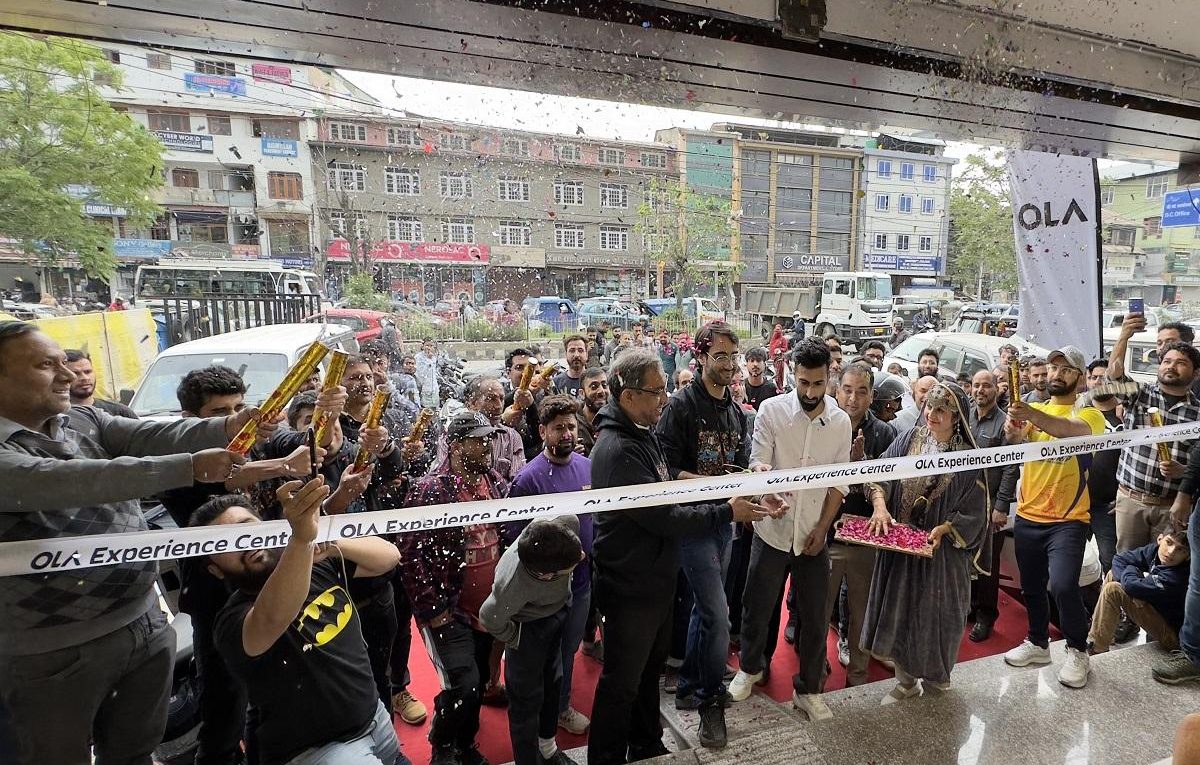Ola Electric expanding fast, to cross 1,000 experience centres this year
With presence in nearly 300 cities, Ola has launched malls across India. It is building the largest D2C (Direct-to-Consumer) retail network in the auto industry in the country in less than eight months since opening its first EC in Pune last year.
“The pace of growth of the EV market is very high. We’ve seen it across small towns, Tier 2 and Tier 3 cities and towns, which is why we have expanded our network very quickly and in advance,” said Anshul Khandelwal, Marketing Director, Ola Electric, in an interview. Opening our 500th store in India, we take great pride in establishing a holistic presence across the entire country with our direct-to-consumer (D2C) approach. With our D2C model, we are in an excellent position to make a significant impact in the world of electric mobility.”
Ola Experience Centers is a one-stop shop for all things Ola Electric Vehicles. It offers electric vehicle enthusiasts the opportunity to experience Ola products and benefit from guidance on the buying journey, financing and after-sales services. Visitors can take a test ride on the S1 and S1 Pro before making a purchase decision.
The company led by Bhavish Aggarwal competes with Ather Energy, Okinawa Autotech, Ampere, Hero Electric and TVS Motor Company. Ola said it currently holds 40 percent of the electric scooter market in India. Last month, the company posted its highest monthly sales, selling more than 30,000 units and cementing its position atop the EV 2W sales chart for the eighth consecutive month.
Due to its omnichannel strategy and rapid offline expansion, Ola said it has achieved a market reach of 98 percent in India, covering almost all markets within the country. Ola introduced its D2C sales and service model for two-wheelers in India, which included door-to-door delivery and service, making it the largest D2C outreach in the Indian automotive industry. Although the company now has 500 ECs nationwide, a large portion of its sales still come from its website and apps. Ola’s omnichannel approach has facilitated the accessibility of EVs across India, especially in remote areas where EVs were previously unavailable.
“A large part of Tier-3, Tier-4 and even some parts of Tier-2 and townships in India are just waiting for someone to come and sell EVs,” Khandelwal said. “We’ve seen firsthand where EVs have already reached a lot of villages and towns and we also don’t know how they got there and how they knew about EVs. That was very surprising. We also have data to back that up.”
Early this year, Ola Electric introduced five new electric motorcycles the company is working on, announcing the range after selling electric scooters. Products have been categorized as Cafe Racer, Adventure Tour, Scrambler and Naked Motorcycle. According to sources, the motorcycles are expected to be launched by next year and will include premium and multi-market versions.
India’s electric vehicle (EV) market is expected to grow to annual sales of 1 million crore units by 2030 and create 50 million direct and indirect jobs, according to the Economic Survey 2022-23.
The survey said that in December 2022, India became the third largest auto market, overtaking Japan and Germany in terms of sales. She said that the auto industry is expected to play a crucial role in the transition towards green energy. “The domestic electric vehicle market is expected to grow at a compound annual growth rate (CAGR) of 49 percent between 2022 and 2030, and is expected to reach one million units of annual sales by 2030,” the company said.
According to industry estimates, electric vehicle sales in India will total around 1 million units in 2022.
The Indian automotive market is poised for rapid growth of electric vehicles due to convergence of factors, including government incentives, improved cost competitiveness and investment in original equipment manufacturers (OEMs) in the industry, along with increased customer readiness and awareness.
The Indian electric vehicle sector has already seen $3.7 billion in private equity and venture capital (PE/VC) investments in the field over the past three years. It appears that this number will increase exponentially as the industry transforms.
The findings of the report indicated that 35 percent – 40 percent of all vehicles sold in India by 2030 will be electric vehicles, up from 2 percent in 2022. This equates to approximately 14 million to 16 million new electric vehicles sold annually.
